Phonics skills improvement Normal Alphabet Worksheets for Ages 4-9
6 filtered results
-
From - To
Enhance your child's phonics skills with our Normal Alphabet Worksheets designed specifically for ages 4 to 9. These engaging worksheets provide an interactive way for young learners to grasp essential phonetic concepts through fun activities and exercises. Focusing on letter recognition, sound associations, and blending techniques, our cutting-edge resource supports foundational literacy development. Parents and educators can guide children to improve their reading abilities and confidence while having fun! All worksheets are conveniently accessible for printing, making learning easy at home or in the classroom. Foster your child's love for reading by exploring our comprehensive phonics improvement materials today!
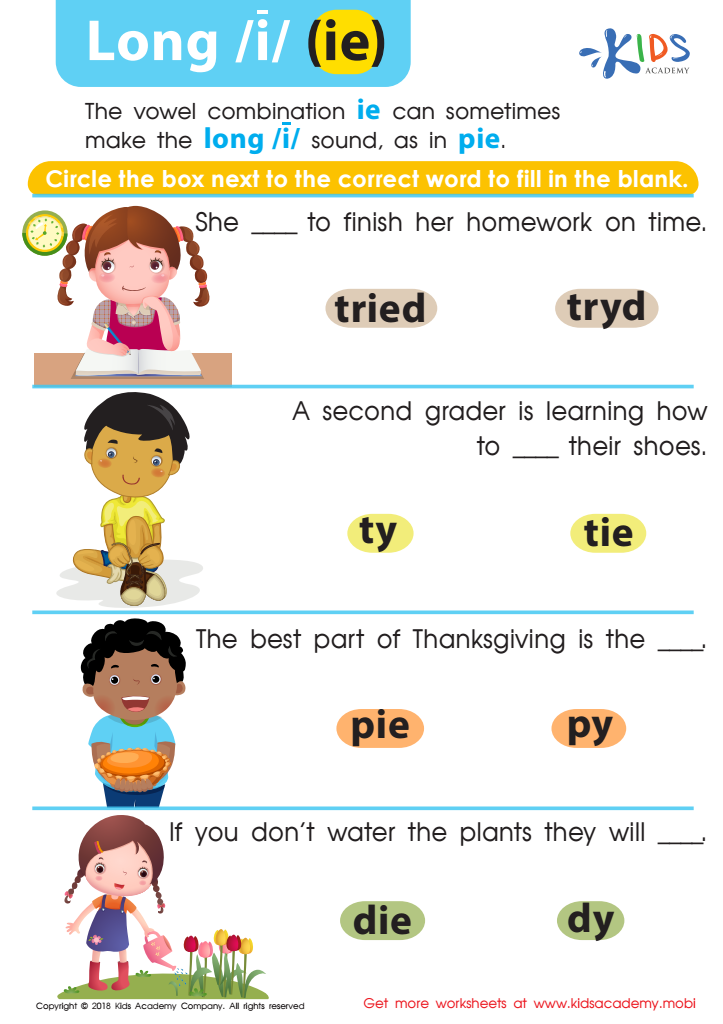

Reading: Long I and IE Worksheet
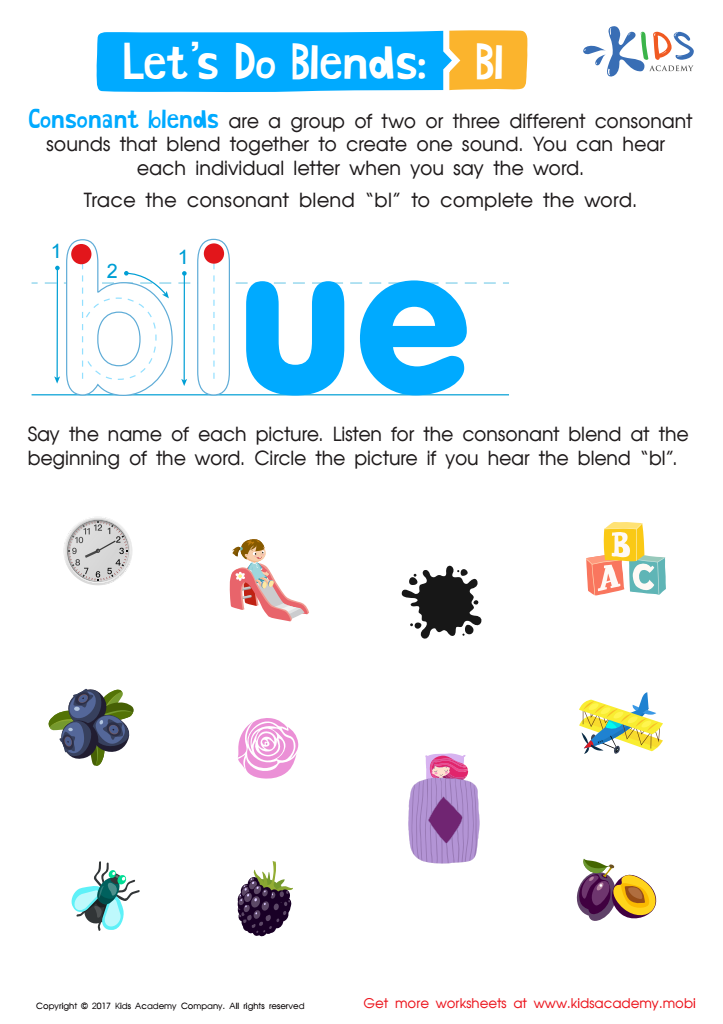

Beginning Blends: "Bl" Words Worksheet
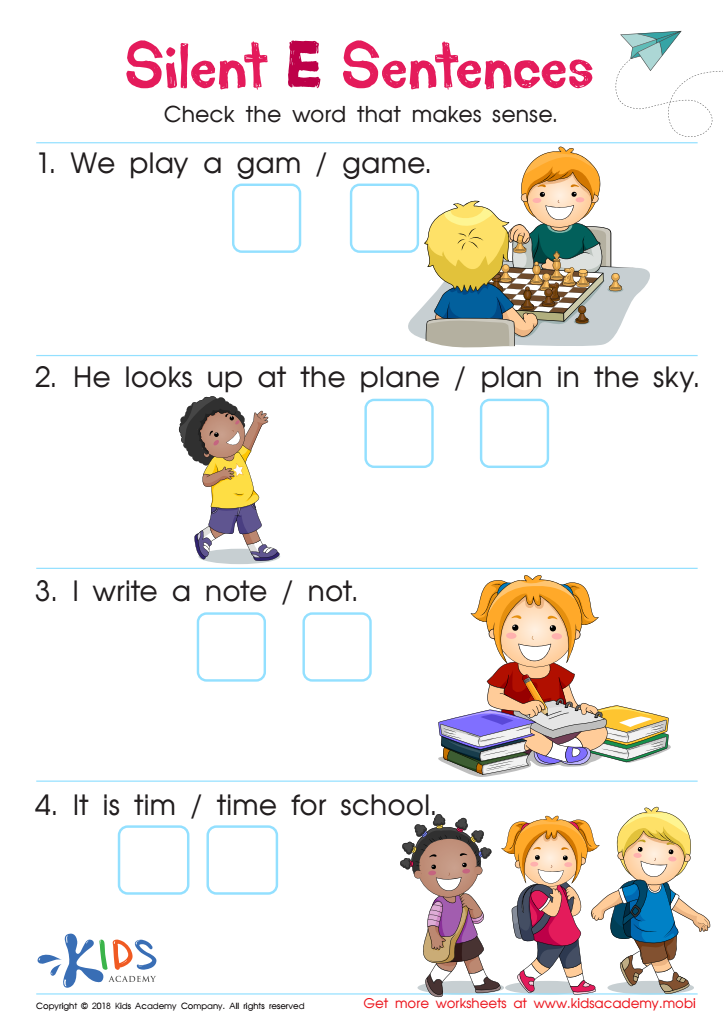

Silent E Sentences Worksheet


Long and Short U Worksheet
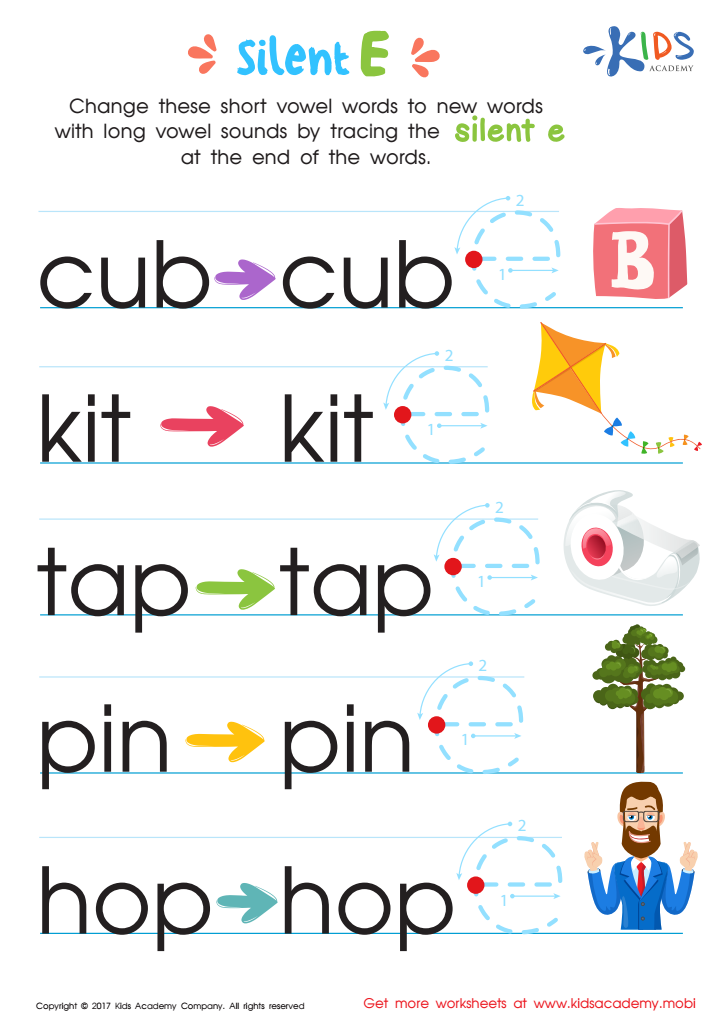

Silent E Words Worksheet
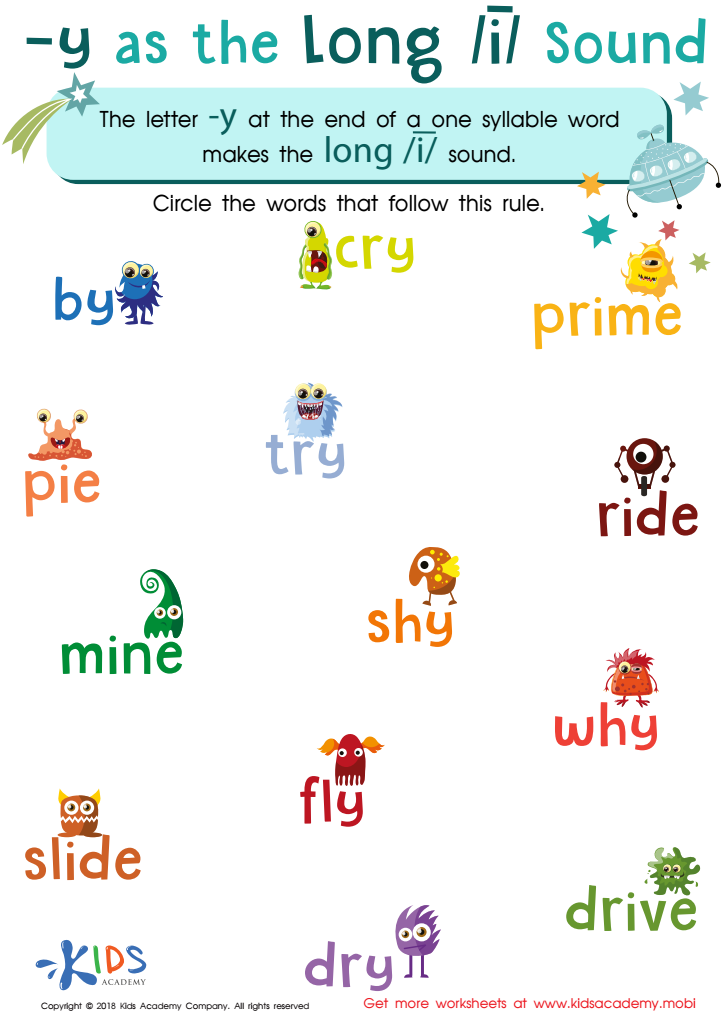

Reading: Y as Long I Worksheet
Phonics skills are crucial for children aged 4-9, as they serve as the foundation for reading and writing. When parents and teachers prioritize phonics improvement, they empower children to decode words, understand spelling, and develop a love for reading. Early mastery of phonics enables children to translate letters into sounds, fostering independent reading as well as efficient comprehension.
Furthermore, strong phonics skills can significantly enhance a child's academic performance across subjects. Reading proficiency contributes to better vocabulary development and improved writing abilities, which are essential for effective communication in school and beyond. Children who are struggling with phonics often face challenges that extend into other areas of learning, potentially impacting their self-esteem and willingness to engage in classroom activities.
In addition, a focus on phonics helps create a solid groundwork for literacy skills that children will build on for years to come. By incorporating phonics instruction into daily routines, both at home and in the classroom, parents and teachers can inspire a positive attitude toward learning and literacy. Ultimately, nurturing phonics skills during these formative years equips children with the essential tools to thrive in their education and enjoy the many benefits that reading brings to their lives.

 Assign to My Students
Assign to My Students




















